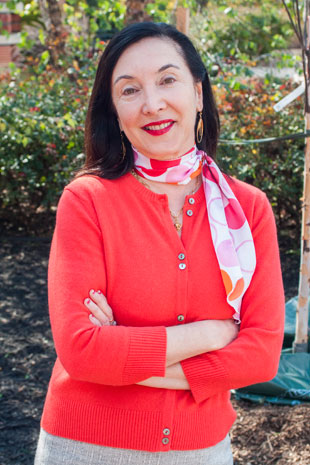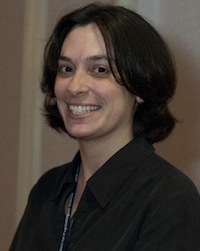
Cognitive science is the interdisciplinary, scientific study of the mind and its processes with input from linguistics, psychology, neuroscience, philosophy, computer science/artificial intelligence, and anthropology. It examines the nature, the tasks, and the functions of cognition. Cognitive scientists study intelligence and behavior, with a focus on how nervous systems represent, process, and transform information. Mental faculties of concern to cognitive scientists include language, perception, memory, attention, reasoning, and emotion; to understand these faculties, cognitive scientists borrow from fields such as linguistics, psychology, artificial intelligence, philosophy, neuroscience, and anthropology. The typical analysis of cognitive science spans many levels of organization, from learning and decision to logic and planning; from neural circuitry to modular brain organization. One of the fundamental concepts of cognitive science is that "thinking can best be understood in terms of representational structures in the mind and computational procedures that operate on those structures."

Cognitive neuroscience is the scientific field that is concerned with the study of the biological processes and aspects that underlie cognition, with a specific focus on the neural connections in the brain which are involved in mental processes. It addresses the questions of how cognitive activities are affected or controlled by neural circuits in the brain. Cognitive neuroscience is a branch of both neuroscience and psychology, overlapping with disciplines such as behavioral neuroscience, cognitive psychology, physiological psychology and affective neuroscience. Cognitive neuroscience relies upon theories in cognitive science coupled with evidence from neurobiology, and computational modeling.
The Helen Wills Neuroscience Institute (HWNI) at the University of California, Berkeley was created in 1997, through a bequest from eight-time Wimbledon champion Helen Wills Moody, an alumna of UC Berkeley.

Music psychology, or the psychology of music, may be regarded as a branch of both psychology and musicology. It aims to explain and understand musical behaviour and experience, including the processes through which music is perceived, created, responded to, and incorporated into everyday life. Modern music psychology is primarily empirical; its knowledge tends to advance on the basis of interpretations of data collected by systematic observation of and interaction with human participants. Music psychology is a field of research with practical relevance for many areas, including music performance, composition, education, criticism, and therapy, as well as investigations of human attitude, skill, performance, intelligence, creativity, and social behavior.

Nancy Gail Kanwisher FBA is the Walter A Rosenblith Professor of Cognitive Neuroscience in the Department of Brain and Cognitive Sciences at the Massachusetts Institute of Technology and an investigator at the McGovern Institute for Brain Research. She studies the neural and cognitive mechanisms underlying human visual perception and cognition.

Jennifer A. Richeson is an American social psychologist who studies racial identity and interracial interactions. She is currently the Philip R. Allen Professor of Psychology at Yale University where she heads the Social Perception and Communication Lab. Prior to her appointment to the Yale faculty, Richeson was Professor of Psychology and African-American studies at Northwestern University. In 2015, she was elected to the United States National Academy of Sciences. Richeson was elected to the American Philosophical Society in 2022. Since 2021, she has been a member of the President’s Council of Advisors on Science and Technology (PCAST).

Laura-Ann Petitto is a cognitive neuroscientist and a developmental cognitive neuroscientist known for her research and scientific discoveries involving the language capacity of chimpanzees, the biological bases of language in humans, especially early language acquisition, early reading, and bilingualism, bilingual reading, and the bilingual brain. Significant scientific discoveries include the existence of linguistic babbling on the hands of deaf babies and the equivalent neural processing of signed and spoken languages in the human brain. She is recognized for her contributions to the creation of the new scientific discipline, called educational neuroscience. Petitto chaired a new undergraduate department at Dartmouth College, called "Educational Neuroscience and Human Development" (2002-2007), and was a Co-Principal Investigator in the National Science Foundation and Dartmouth's Science of Learning Center, called the "Center for Cognitive and Educational Neuroscience" (2004-2007). At Gallaudet University (2011–present), Petitto led a team in the creation of the first PhD in Educational Neuroscience program in the United States. Petitto is the Co-Principal Investigator as well as Science Director of the National Science Foundation and Gallaudet University’s Science of Learning Center, called the "Visual Language and Visual Learning Center (VL2)". Petitto is also founder and Scientific Director of the Brain and Language Laboratory for Neuroimaging (“BL2”) at Gallaudet University.
Marlene Behrmann is a Professor in the Department of Ophthalmology at the [(University of Pittsburgh)]. She was previously a Professor of Psychology at Carnegie Mellon University. She specializes in the cognitive neuroscience of visual perception, with a specific focus on object recognition.

Helen J. Neville was a Canadian psychologist and neuroscientist known internationally for her research in the field of human brain development.
Philip David Zelazo is a developmental psychologist and neuroscientist. His research has helped shape the field of developmental cognitive neuroscience regarding the development of executive function.
A number of studies have found that human biology can be linked with political orientation. This means that an individual's biology may predispose them to a particular political orientation and ideology. Many of the studies linking biology to politics remain controversial and unrepeated.Davies, James. "The Proper Biological Study of Politics". Political Psychology. 4 (4): 731–743. doi:10.2307/3791065. JSTOR 3791065.
Neuropolitics is a science which investigates the interplay between the brain and politics. It combines work from a variety of scientific fields which includes neuroscience, political science, psychology, behavioral genetics, primatology, and ethology. Often, neuropolitics research borrow methods from cognitive neuroscience to investigate classic questions from political science such as how people make political decisions, form political / ideological attitudes, evaluate political candidates, and interact in political coalitions. However, another line of research considers the role that evolving political competition has had on the development of the brain in humans and other species. The research in neuropolitics often intersects with work in genopolitics, political psychology, political physiology, sociobiology, neuroeconomics, and neurolaw.

Matthew Dylan Lieberman is a Professor and Social Cognitive Neuroscience Lab Director at UCLA Department of Psychology, Psychiatry and Biobehavioral Sciences.
David Amodio is an American scientist who examines the psychological and neural mechanisms underlying social behavior, with a focus on self-regulation and intergroup relations. Amodio is known for his role in developing the field of social neuroscience and for his neuroscientific approach to social psychology.
Laura E. Schulz is a professor of cognitive science at the brain and cognitive sciences department of the Massachusetts Institute of Technology. She is the principal investigator of the Early Childhood Cognition Lab at MIT. Schulz is known for her work on the early childhood development of cognition, causal inference, discovery, and learning.

Sharon Thompson-Schill is the Christopher H. Browne Distinguished Professor of Psychology at the University of Pennsylvania in Philadelphia, Pennsylvania. Her research covers the field of biological basis of human cognitive systems, including language, memory, perception, and cognitive control, and the relationships between these systems. As of 2023, she has produced more than 190 scientific publications, which collectively have been cited over 18,000 times.
Elizabeth Anya Phelps is the Pershing Square Professor of Human Neuroscience at Harvard University in the Department of Psychology. She is a cognitive neuroscientist known for her research at the intersection of memory, learning, and emotion. She was the recipient of the Social and Affective Neuroscience Society Distinguished Scholar Award and the 21st Century Scientist Award from the James S. McDonnell Foundation, as well as other honors and awards in her field. Phelps was honored with the 2018 Thomas William Salmon Lecture and Medal in Psychiatry at the New York Academy of Medicine. She received the 2019 William James Fellow Award from the Association for Psychological Science (APS) which acknowledged how her "multidisciplinary body of research has probed the influence of emotion across cognitive and behavioral domains using novel imaging techniques and neuropsychological studies grounded in animal models of learning."
Deanna Marie Barch is an American psychologist. She is a chair and professor of Psychological and Brain Sciences and the Gregory B. Couch Professor of Psychiatry at Washington University in St. Louis. Her research includes disorders such as schizophrenia, depression, cognitive and language deficits. She also focuses on behavioral, pharmacological, and neuroimaging studies with normal and clinical populations. Barch is a deputy editor at Biological Psychiatry. She previously served as editor-in-chief of Cognitive, Affective and Behavioral Neuroscience.
Beatriz Luna is a developmental neuroscientist known for conducting neuroimaging research on the development of cognitive control, reward, and reinforcement learning from early childhood to adolescence.
Nim Tottenham is a professor of psychology at Columbia University, where she leads the Developmental Affective Neuroscience Laboratory. Her research highlighted fundamental changes in amygdala-prefrontal cortex circuitry across childhood and adolescence and the influential role of early experiences on the developmental trajectories of these circuits.







